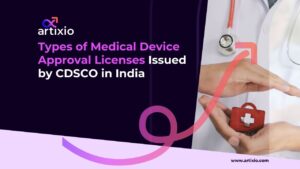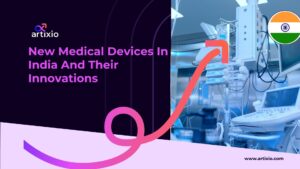In Canada, the medical devices are regulated by Health Canada under Health Products and Food Branch, Therapeutic Products Directorate, Medical Devices Bureau. Health Canada regulates medical devices to ensure their safety, effectiveness, and quality throughout their lifecycle. The medical devices are regulated under Food and Drugs Act and Medical Devices Regulations (SOR/98-282).
Unlike, other countries, Health Canada does not require the foreign manufacturers to appoint a local representative as a pre-requisite to market the medical devices in Canada.
Classification of Medical Devices in Canada
Medical devices are categorized into four classes (Class I to IV) based on their level of risk to the patient and user. The classification is determined by the device’s intended use, technological characteristics, and potential risks associated with its use. The classification determines the level of regulatory control and requirements for approval.

Medical Device Establishment License (MDEL) in Canada
A Medical Device Establishment License (MDEL) is granted for operations involving the importation or distribution (sale) of medical devices intended for human use in Canada. Additionally, manufacturers of Class I medical devices, who don’t exclusively sell through a licensed Canadian importer or distributor, are also mandated to obtain MDELs. Charges are applicable for the initial MDEL, subsequent yearly licenses, and the reinstatement of an MDEL. These fees are uniformly imposed on both foreign and domestic establishments.
Registration of Medical Devices in Canada – Medical License Application
The process mandates thorough completion of the application form, adherence to device classification guidelines, providing detailed device information, and ensuring compliance with recognized standards. The manufacturer must certify the accuracy and completeness of the application before submission. The application process involves several key elements:
- Device classification based on Schedule 1 of the Regulations.
- Completion of the appropriate application form based on device class.
- Providing specific device information such as name, manufacturer details, regulatory correspondent information, and invoicing details.
- Submission of a quality management system certificate and necessary attestations as per device class requirements.
- Description of the device’s intended use, including patient population, energy source usage, and related specifics.
- Specification of the device’s application type (single device, device family, group, etc.).
- Identification of the device’s place of use and any drugs contained within the device.
- Disclosure of device history and identifiers.
- Listing compatibility with interdependent devices and recognized standards adhered to during manufacture.
- Option to request priority review for specific medical devices.
- Inclusion of review documents and adherence to the appropriate fee form and guidelines.
Before submitting the application:
- Complete all necessary forms and ensure accuracy and completeness of information.
- Provide the required documentation, including the quality management system certificate.
- Submit applicable fees with the application or upon receipt of an invoice.
Health Canada Medical Device License Review Process-
The Medical Device License (MDL), once submitted, undergoes the meticulous stages involved in the scrutiny and evaluation of applications for medical device licenses.
Administrative Screening
Validation: Applications are validated for administrative completeness, including fee forms, folder structures, file naming conventions, and formats. The examination aims to be completed within four calendar days of receipt.
Acceptable Applications: Notifications via email will indicate when applications meet administrative requirements and proceed to subsequent screening.
Regulatory Screening
Examination for Validity: Applications undergo scrutiny for regulatory information validity. Timelines for various classes of licenses are specified.
Acceptable Information: Timelines are defined for different classes of licenses for examination and issuance upon receipt of a complete application.
Incomplete Information: Deficient applications result in deficiency notices. Specific timelines are provided for rectifying deficiencies or risk rejection.
Technical Screening
Review for Technical Completeness: Class III and IV license applications are screened for technical completeness. Timelines for screening and acceptance are delineated.
Incomplete Information: Deficient applications receive notices for rectification within a specified period, failing which a rejection may occur.
Rejection Letters: If the original application is grossly deficient, a rejection letter is issued.
Administrative Processing
Processing Period: A three-day period for processing and generating regulatory decision letters and licenses.
Review
Review Timelines: Defined timelines for the review process following the acceptance of applications.
Clarification Requests: Requests may be issued during review for additional information or clarity.
Refusal and Withdrawal: Letters indicating refusal or withdrawal may be issued in certain circumstances.
Re-Filing Applications
Re-Filing Within Six Months: Procedures for re-filing an application within six months of refusal or withdrawal are outlined, including material submission and fee statuses.
Re-Filing After Six Months: Different procedures apply for re-filing after six months, requiring a completely new application.
Health Canada Timelines and Fees for registration of Medical Device Licenses
The Class I medical devices, custom-made medical devices, medical devices for special access and medical devices for investigational testing involving human subjects are exempted from registration and no fees has to be paid to Health Canada.
Health Canada fees for Medical Device Establishment License (MDEL) is CAD 5,060
Health Canada Fees for review of Medical Device License Application for Registration of medical devices

Health Canada employs a risk-based approach, focusing on ensuring the safety, efficacy, and quality of medical devices reaching the Canadian market. Manufacturers and applicants must diligently prepare and submit the necessary information, including device specifications, quality data, clinical evidence, and risk management plans.
Looking for expert guidance and support in navigating the Canadian medical device registration process? Contact Artixio today! Our experienced team specializes in regulatory affairs and can assist you in streamlining your medical device registration journey, ensuring compliance with Health Canada’s standards and facilitating market entry in Canada.





